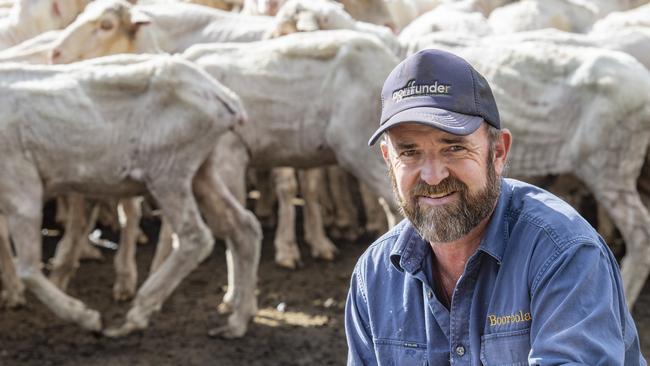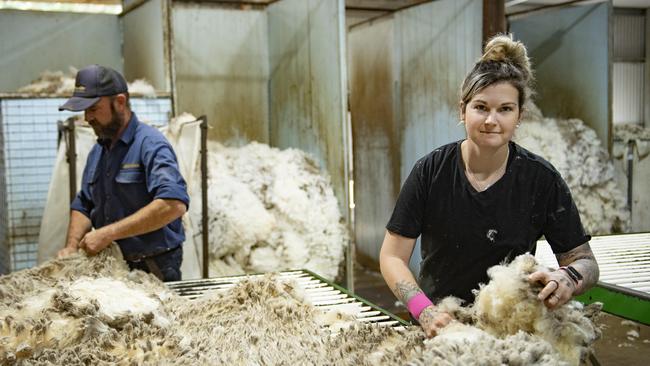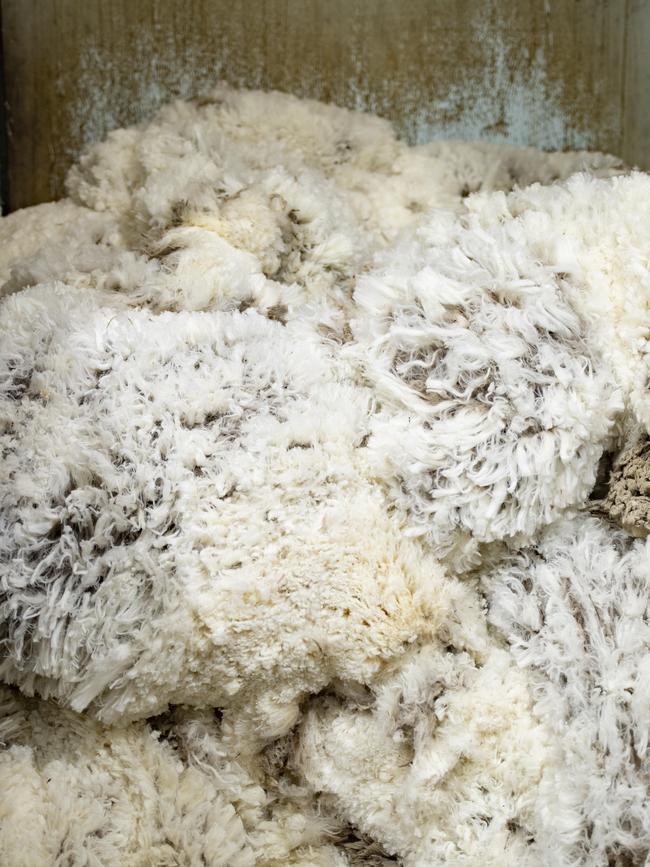Responsible Wool Standards earns growers 10 per cent premium
Wool growers say joining one of these schemes is a must – not just to be more profitable, but to maintain market access.
For wool producer James Ridgway, being certified by a wool quality assurance scheme is a no-brainer.
The manager of Gantag’s Booroola property at Avenel said all wool producers should “jump on board” or they were being “left behind”.
Running a fine wool Merino flock on the 4500ha property, James said he started looking into the ZQ Merino Fibre wool accreditation and supply program when he heard from his broker that buyers were walking past wool that met most of their specifications, but they did not buy it because it was from mulesed sheep.

As consumers demand better welfare standards and more transparency from their wool products, growers such as James are increasingly trying to “learn the language” of the quality assurance schemes that have become an integral selling point in the market.
Three modern systems classed as sustainable welfare integrity schemes exist in the Australian market among many. SustainaWOOL is the largest, accounting for 95,362 bales last season, followed by Authentico at 61,950 bales and Responsible Wool Standards with 46,200 bales.
For James, ZQ Merino Fibre fit with his production system and values.
“So we stopped mulesing in about 2019 and changed ram genetics to make it an easier transition, so we were doing everything we needed to, to become part of ZQ,” he said.

ZQ Merino Fibre, born out of New Zealand, is a wool certification standard and considered the world’s largest ethical wool brand. It was launched in Australia in 2018 by Australian Wool Network and is an independently audited program designed to give confidence to brands and consumers regarding the production of their wool, focused on animal welfare, environmental integrity, social responsibility, fibre quality and traceability to origin.
James said the farm was accredited by ZQ, and therefore Responsible Wool Standard certified, last year and then earlier this year became part of the ZQRX program, which is defined “as a measure beyond sustainability”.
He said while there were other schemes, they decided on ZQ because of its relationship with AWN and the fact the ZQ values aligned with their management approach. Initially they signed up for a two-year contract at a set price for their wool.

However, James said while ZQ took most of the contracted wool, some was finer, but ZQ bought it at a spot price that was 200-250c/kg better than it would have been in the traditional market.
He said having the added ZQRX certification took into account what they did for the environment and in the community.
“It helps build the story that goes to the brand partners. And we were at a ZQ event with brand partners recently and all they want to know is our story,” he said.
“If you don’t participate in a quality assurance scheme, you are being left behind.”
SCHEME CHOICES IN AUSTRALIA
While spoiled for choice of quality assurance schemes, many Australian growers choose SustainaWOOL.

“We’ve just registered our 1212th grower,” SustainaWOOL technical adviser Dr Paul Swan said.
Created in 2015, and taken over by AWEX in mid-2019, the accredited growers of the SustainaWOOL integrity scheme now produce 10.5 per cent of Australia’s Merino clip and 7.3 per cent of all Australian wool.
SustainaWOOL growers are split into three tiers – blue certification growers who continue to mules, green growers who do not mules and the top tier of gold growers who do not mules and are subject to yearly farm inspections.
Dr Swan said green tier growers typically received a 6 per cent premium at auction for their Merino compared to non-accredited lots, and blue growers typically received a 2 per cent premium and a lower pass-in rate.
Mecardo wool analyst Andrew Wood said accredited bales were commanding premiums in the market.
“I think people are getting more interested in the quality assurance schemes because there is a perceived reward,” Mr Wood said. “But the spectacular one this season has been the size of the RWS premium.
“RWS wool (in Australia) is now seeing an 8 to 10 per cent premium on non-accredited wool – that’s about 2 to 4 per cent above SustainaWOOL and Authentico,” he said.




